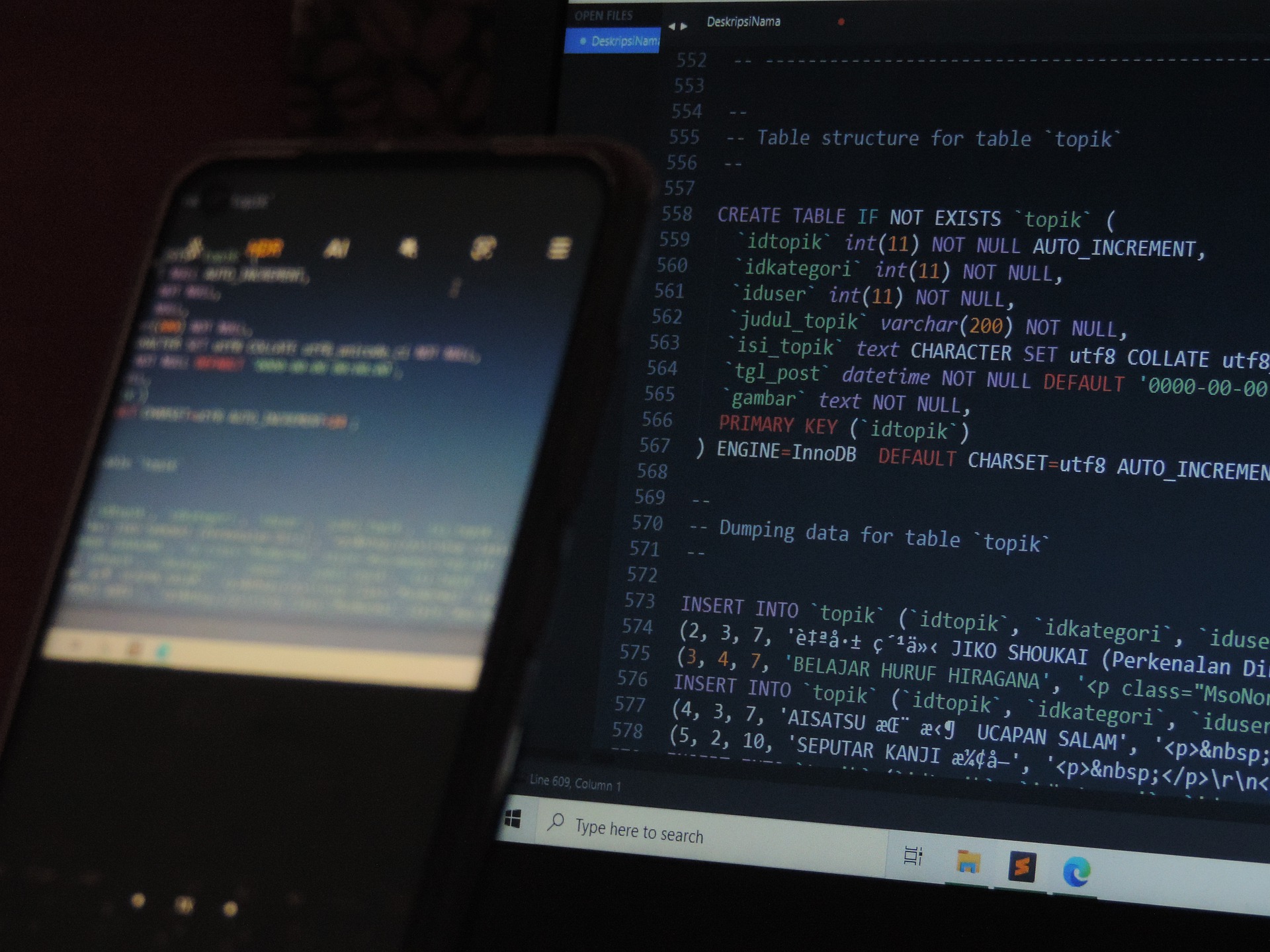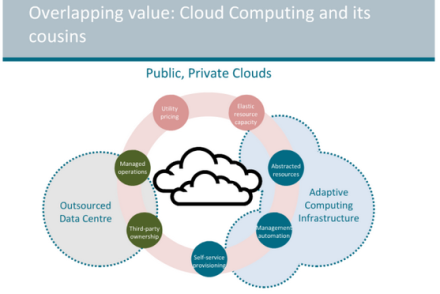The position of an SQL developer, a professional responsible for database management, has become invaluable as the successes of businesses in nearly all industries depend on how well they manage the data. That’s why, in this article, we’re going to take a closer look at the SQL developer job description and salary expectations.
Learning how to use SQL programming language opens up a variety of opportunities, and besides working as a developer, you can use the knowledge of SQL to become a data scientist, big data expert, or database migration engineer.
In addition, mastering the SQL programming language is necessary if you want to create database infrastructures or become a data architect. We’re going to provide you with an overview of the SQL developer job requirements and salary expectations.
You should also look at our IT database administrator job overview if you’re interested in starting a DBA career.
What is SQL?
Having a strong command of SQL or Structured Query Language has become a standard for maintaining all relational databases. The language is used to extract and organize the data within a database.
Relational SQL database management systems allow you to create new databases or edit the information featured in existing databases.
Unlike CSS, ELM, or Java, SQL is a backend language that enables you to interact with multiple databases simultaneously and lets you set the rules for storing, modifying, or deleting server data. The language itself is easy to master, especially if you already know how to use Python, C++, and other programming languages.
The learning curve might be steeper if you don’t have previous coding experience or a data management background. Read our DynamoDB vs. MongoDB comparison to learn more about the differences between these NoSQL databases.
What Does an SQL Developer Do?
The key responsibilities of SQL developers include the creation, development, and maintenance of SQL databases. In addition, you’ll also be tasked with adding new tables, structures, dictionaries, and schemas to existing databases and adjusting them to meet the needs of end-users.
SQL developers work in a wide range of industries that span from finance to healthcare, and the requirements of their jobs often depend on the company they’re working for.
However, ensuring data integrity, quality, and security is the top priority of all SQL developers, whether creating a server web application or maintaining an SQL healthcare client database. The duties of SQL developers include writing scripts, stored procedures, and application development triggers.
Backing up the system and performing regular database tests with the aim of detecting and fixing bugs are also among the things you’ll have to do as an SQL developer. Browse through our data analyst job description if you’re considering pursuing this career path.
Understanding Relational SQL Database Management Systems
To get an SQL developer job, you must be familiar with one or more relational SQL database management systems. You need to have a strong command of the SQL language in order to use a relational database system.
Each RDBMS has different features, so for instance, MySQL supports full-text and hash indexing while Oracle SQL allows you to use partitioned, bitmap, or function-based indexes. Feeling comfortable using multiple SQL RDBMS will increase your chances of landing an SQL developer job.
Let’s take a look at some of the most common relation SQL database management systems.
MySQL
You can use MySQL for a wide range of purposes, including the creation of logging applications, warehousing, or e-commerce. This open-source database system lets you create web-based databases and design websites that interact with these databases to display the information a user requested in real-time.
The software separates data into multiple tables rather than grouping it into one place, which enables you to access a specific bit of information quickly.
MySQL allows you to determine the rules under which different data fields interact and prevents displaying outdated or inconsistent data within the application.
Oracle SQL
Learning your way around the Oracle SQL environment could be enough to get an entry-level SQL developer job. You can use this database system to develop applications for Windows, macOS, and Linux operating systems.
Developing PL/SQL applications, data modeling, generating worksheets for running scripts, or migrating 3rd party databases to Oracle are among the functionalities Oracle SQL offers.
Besides using the software from a desktop computer, you can open the Oracle SQL application in a web browser and access an Oracle database without having to go through the installation process.
Microsoft SQL Server
Designed for the production of small server, desktop, and web applications, the Microsoft SQL Server is a versatile tool that lets you retrieve and store data requested by other applications.
The standard edition of this software product features a database core engine, and it supports a variety of stand-alone tools.
The enterprise, web, or express editions of the software all have different functionalities, but you can also opt for specialized Azure and Developer versions of the Microsoft SQL Server if you need access to advanced features.
Postgre SQL
Labeled as the world’s most advanced open-source database, the Postgre SQL offers functionalities you cannot find on Microsoft SQL Server or MySQL.
This object-relational database management system allows you to create robust databases capable of performing demanding data warehousing or data analysis tasks. Despite offering an advanced set of features, the Postgre SQL still doesn’t outperform the Oracle SQL environment.
Hence, if you’re in doubt about which of these relational SQL database management systems you should learn, the best answer is that you should start with the Oracle SQL and then move on to Postgre SQL or the Microsoft SQL Server.
You should also go through our FireBase vs. MongoDB comparison if you would like to learn how to use NoSQL databases.
SQL Developer Skills and Qualifications
The career path of an SQL developer starts with education, since getting this job with just a high school diploma is nearly impossible. The vast majority of professionals who work as SQL developers have either a bachelor’s or master’s degree in Computer Science, Computer Information Systems, or a related field.
Attending data engineering, system architect, or data management courses during your studies will set you on the right career path to becoming an SQL developer.
Besides the knowledge of the SQL programming language and familiarity with relational SQL database management systems, proficiency in C#, PHP, Python, or JavaScript is required for this position.
In case you didn’t have a chance to learn how to use these languages in school, you can attend online courses or boot camps where you can develop your skills.
Moreover, you’ll have to decide which applications of SQL you want to learn, so for instance, if you want to go into web development, you’re going to need an excellent command of HTML. Check out our Health Information management job description if you’d like to work in the health industry.
Becoming an SQL Developer
Besides education, the SQL developer job requires a considerable amount of work experience. This is not an entry-level position, so you shouldn’t expect that this is going to be your first job in IT, even if you have a master’s degree.
Get an internship
Completing one or more three to six-month internships while you’re still in school can increase your chances of becoming an SQL developer. This will allow you to become more familiar with data management systems and obtain the skills you need to work with big data.
Landing a database management job
Starting out as a database administrator, software developer, or information security analyst will help you gain the work experience you need to become an SQL developer.
Most companies require two or more years of experience in database management jobs for this position, so you’ll need to spend some time in this sector before you can start hunting for SQL developer jobs.
Besides, this position has several seniority levels, so once you manage to get an SQL developer job, you’ll have to continue growing in this role.
Obtaining certifications
Becoming Oracle Database SQL certified associate or a Microsoft-Certified IT professional will increase your chances of getting this job, but it will also increase your market value.
Passing the certification exams requires a combination of theoretical and practical knowledge, so the process of preparing for these exams can take anywhere from a few weeks to several months.
Browse through our CCNA vs. CCNP comparison if you’d like to obtain networking certification.
Average SQL Developer Salaries
SQL developers don’t earn as well as data scientists, data architects or machine learning engineers. Moreover, their annual income depends on the company they’re working for, the seniority of their position, education level, and work experience.
The average salary for this role is approximately $79,500, but the starting salary for an entry-level SQL developer is usually in the range between $60,000 and $65,000 per year. Senior SQL developers earn a bit less than $100,000 yearly, and their hourly rate is usually around $50.
You should search for SQL developer positions in the insurance, finance, and healthcare sectors because companies in these industries tend to pay more for this role than tech or retail businesses.
Your salary expectations should be adjusted to the local market since you can’t make more than $85,000 as an SQL developer if you live in Louisiana, regardless of how much experience you have or your seniority level.
You can earn more than $100,000 per year in the same position if you live in Texas or Washington DC. However, you shouldn’t accept hourly rates below $30 for this position, even if the SQL salaries in your state are below the national average.
Read our Oracle DBA job description to get more information about what this role entails.
The Pros and Cons of Becoming an SQL Developer
Advantages
SQL developers can work in different industries
Companies from tech, finance, pharmaceutical, or insurance sectors employ SQL professionals. Hence, you can profile yourself to work in a specific industry, or you can switch between different sectors based on your current interests.
Learning the SQL programming language isn’t difficult
It shouldn’t take you more than few months to learn enough of the SQL programming language so that you can start working in relational SQL database systems.
The job isn’t stressful.
Although each company has slightly different expectations from SQL developers, in most cases, the job offers a great life-work balance. All SQL professionals work a standard 40-hour week either from the office or remotely.
Disadvantages
Most SQL developers have a college degree.
A bachelor’s or master’s degree is often one of the requirements listed in the SQL developer job description. Moreover, SQL developers who only have a bachelor’s degree are often paid less than their colleagues who have a master’s degree or a doctorate.
Becoming an SQL developer requires a lot of hard work
You need to have the right education and a considerable amount of experience in order to become an SQL developer. You’ll have to spend several years in different positions before you gather the experience you need for the SQL developer role.
What’s the Difference Between SQL and NoSQL Databases?
As we already mentioned, SQL environments allow you to create relational databases that store information in tables. A NoSQL database is non-relational, and it grants you access to dynamic schemas that make working with unstructured data easier.
You can store documents, graphs, or key-values in NoSQL databases and create documents without having to define their structure.
Even though NoSQL is rarely a requirement for an SQL developer job, knowing how to use non-relational databases can help deal with tasks that involve the management of unstructured data.
Using NoSQL databases isn’t difficult, and it won’t take you too much time to master Apache Cassandra or Couchbase database management systems.
Frequently Asked Questions About SQL Developer Jobs and Salaries
Question: Do SQL developers write code?
Answer: Yes, they do, and you’re going to need some coding experience to become an SQL developer.
Question: How long does it take to become an SQL developer?
Answer: It might take you a few years to get an SQL developer role, provided that you’ve no previous knowledge of the SQL programming language or relational SQL data management systems.
Question: Can I learn SQL programming language online?
Answer: Yes, you can. There are plenty of online SQL training courses that issue competition certificates.
Question: Which soft skills do I need to become a SQL developer?
Answer: This role doesn’t include working with clients, but you’ll still be working in a team, so you’ll need excellent communication skills. Analytical thinking and the ability to multitask are also among the soft skills you’re going to need for this job.
Finial thoughts
Mastering the SQL programming language and relational SQL database environments is an excellent career move that will enable you to work in some of the fastest-growing companies on the market. The path towards this position isn’t easy, especially if you don’t have a bachelor’s or master’s degree.
SQL developers are well paid, and the position offers room to grow as you obtain certifications and experience. You can earn as much as $50 per hour as an SQL developer, but reaching that paygrade can take years.
Was this article helpful? Let us know in the comments, or continue reading our mobile app developer job description to learn more about the skills you need to build mobile apps.
- Data Architect Job Description and Salary Expectations - November 4, 2021
- SQL Developer Job Description and Salary Expectations - November 3, 2021
- Sharepoint Developer Job Description and Salary Expectations - November 3, 2021













No Comments